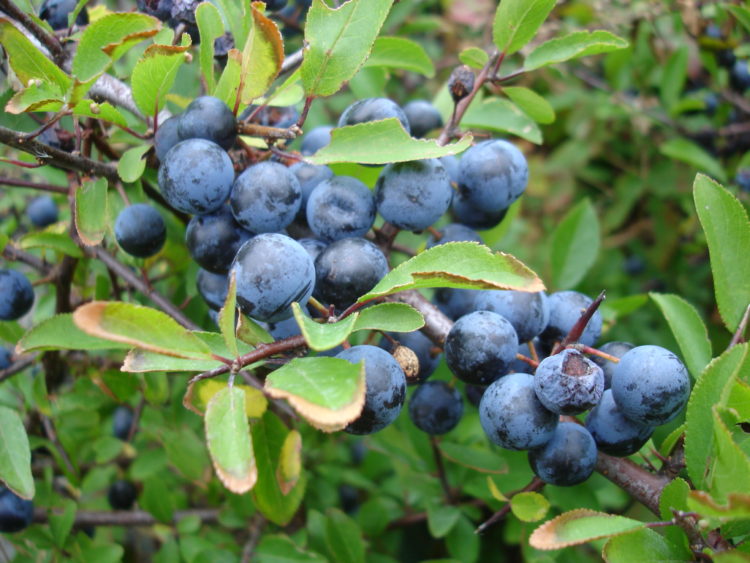
Blueberries have the highest antioxidant capacity of any fruit. It almost sounds too good to be true when you consider how awesome they taste.
But no, it’s the truth – blueberries are among the healthiest foods out there.
Antioxidants are crucial when it comes to maintaining a healthy body. They also work wonders in the area of anti-aging.
A study published in the Journal of the Academy of Nutrition and Dietetics found that daily consumption of blueberries “improves blood pressure and arterial stiffness in postmenopausal women.”
And it’s not just postmenopausal women that reap the benefits of blueberries – they also reduce DNA damage, protect against cancer and help the cholesterol in your heart.
Here are more detailed findings:
- After many years of research on blueberry antioxidants and their potential benefits for the nervous system and for brain health, there is exciting new evidence that blueberries can improve memory. In a study involving older adults (with an average age of 76 years), 12 weeks of daily blueberry consumption was enough to improve scores on two different tests of cognitive function including memory. While participants in the study consumed blueberries in the form of juice, three-quarters of a pound of blueberries were used to make each cup of juice. As participants consumed between 2 to 2-1/2 cups each day, the participants actually received a very plentiful amount of berries. The authors of this study were encouraged by the results and suggested that blueberries might turn out to be beneficial not only for improvement of memory, but for slowing down or postponing the onset of other cognitive problems frequently associated with aging.
- New studies make it clear that we can freeze blueberries without doing damage to their delicate anthocyanin antioxidants. There’s no question about the delicate nature of many antioxidant nutrients found in blueberries. These antioxidants include many different types of anthocyanins, the colorful pigments that give many foods their wonderful shades of blue, purple, and red. After freezing blueberries at temperatures of 0°F (-17°C) or lower for periods of time between 3-6 months, researchers have discovered no significant lowering of overall antioxidant capacity or anthocyanin concentrations. Anthocyanins studied have included malvidins, delphinidins, pelargonidins, cyanidins, and peonidins. These findings are great news for anyone who grows, buys, or picks fresh berries in season and wants to enjoy them year round. They are also great news for anyone who has restricted access to fresh blueberries but can find them in the freezer section of the market.
- Berries in general are considered low in terms of their glycemic index (GI). GI is a common way of identifying the potential impact of a food on our blood sugar level once we’ve consumed and digested that food. In general, foods with a GI of 50 or below are considered “low” in terms of their glycemic index value. When compared to other berries, blueberries are not particularly low in terms of their GI. Studies show the GI for blueberries as falling somewhere in the range of 40-53, with berries like blackberries, raspberries, and strawberries repeatedly scoring closer to 30 than to 40. However, a recent study that included blueberries as a low-GI fruit has found that blueberries, along with other berries, clearly have a favorable impact on blood sugar regulation in persons already diagnosed with type 2 diabetes. Participants in the study who consumed at last 3 servings of low-GI fruits per day (including blueberries) saw significant improvement in their regulation of blood sugar over a three-month period of time. (Their blood levels of glycosylated hemoglobin, or HgA1C were used as the standard of measurement in this study.) It’s great to see blueberries providing these clear health benefits for blood sugar regulation!
- If you want to maximize your antioxidant benefits from blueberries, go organic! A recent study has directly compared the total antioxidant capacity of organically grown versus non-organically grown highbush blueberries (Vaccinium corymbosum L., var. Bluecrop) and found some very impressive results for the organically grown berries. Organically grown blueberries turned out to have significantly higher concentrations of total phenol antioxidants and total anthocyanin antioxidants than conventionally grown blueberries, as well as significantly higher total antioxidant capacity. Numerous specific antioxidant anthocyanins were measured in the study, including delphinidins, malvidins, and petunidins. The antioxidant flavonoid quercetin was also measured.
So bottom line, if you’re gonna overindulge on any one fruit, you can’t go wrong with blueberries. And you certainly won’t be alone – they’re second only to strawberries when it comes to popularity.
But hey, as with most produce, blueberries are expensive.

So what on earth are you going to do?
If you’ve been hanging around this website long enough, you already know the answer – you’re gonna grow your own! Well, at least I’ll show you how.
To start, select blueberry plants that are suited towards growing in pots.

Try this variety, for example.
Next, you’ll need to choose the right type of soil. It needs to have an acid pH level in the range of 4.5 to 5.0. The most common cause of failure when it comes to planting blueberries is the wrong pH level.
Once you’ve got your blueberry plant, your soil and your pot or bucket, fill the container two-thirds with soil. Center your blueberry bush in the container and cover it with soil right up to the crown.
Don’t plant it much deeper than it was in the nursery pot as blueberry roots are shallow. Once you’ve finished planting the bush, water it well and fill in any air pockets with more soil.
Spread 1 to 2 inches of mulch such as pine needles on top of the soil.
The more sun your plant gets the better – aim for about six hours of sunlight a day to be hitting your blueberry plant.
I hope you’ve got lots of friends that love blueberries ’cause pretty soon, you’re gonna have more than you can handle!


